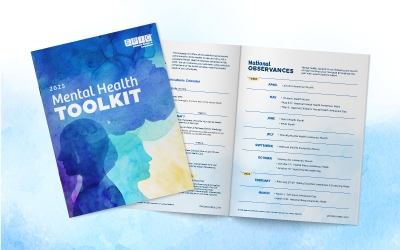Viewpoints from Craig Hasday
The passing of Justice Ruth Bader Ginsburg throws a giant monkey wrench into the healthcare battle and is yet another unexpected plot twist in 2020. California v. Texas (known as Texas v. U.S. in the lower courts) will be heard by the Supreme Court on November 10 – the week after the presidential election – and it may well be that this case ends up at a 4-4 tie with Justice Ginsburg’s seat vacant. A tie would mean California v. Texas gets sent back to the lower courts and the decision would stand, yet it would not be binding on any other circuit. Or, if a new justice is appointed by then, perhaps the vote would be 5-4 to strike down.
But that’s just a plot twist.
Whether the Affordable Care Act (ACA) is overturned or not, there is a lot of uncertainty surrounding healthcare in this critical election year.
If the ACA is ruled unconstitutional, with a Republican victory, the big question is what’s next?
Fearing voter backlash from the elimination of the ban on pre-existing medical conditions, President Trump has already issued an executive order mandating that the ban continues regardless of the Supreme Court decision. But, if they can’t achieve total repeal, Republicans are intent on whittling down the remaining greater provisions. But other ACA provisions are at risk, such as subsidies to individuals, which fund much of the coverage purchased on the exchanges. Also, coverage for dependent children to age 26 could be eliminated. While the employer mandate would also be eliminated, I don’t believe that would be as impactful since most larger employers did, and continue to, provide coverage. But the types of coverage deemed to be “essential” under ACA could be eliminated. Despite alluding to “something much better than the ACA,” the Republicans have yet to outline any tangible strategy to move healthcare forward.
If the Democrats are victorious and win the Senate back, it’s pretty clear there would be a return to the ACA,
and many of the provisions that have been carved out would be restored. They would also likely push for a public option, allowing at least some to elect into the Medicare system. While there is a lot of rhetoric about single-payer healthcare, I really don’t see that this is feasible anytime soon. The dismantling of the current federal Medicare system, the federal-state partnership Medicaid programs, the employer-paid system, and other healthcare delivery mechanisms that would be required are too complex to undertake.
Since Justice Ginsburg’s death, healthcare company stocks have taken a beating. The uncertainty that the status quo will continue has that effect.
Check out COVID-19 resources for employee benefits and risk management at the EPIC coronavirus update center
See results from our In It Together COVID-19 pulse surveys by visiting epicbrokers.com/insights/preparing-for-the-new-normal
EPIC offers these opinions for general information only. EPIC does not intend this material to be, nor may any person receiving this information construe or rely on this material as, tax or legal advice. The matters addressed in this article and any related discussions or correspondence should be reviewed and discussed with legal counsel prior to acting or relying on these materials.
Related Content
Products
Employee Benefits Consulting
Our dedicated benefits team is focused on delivering better outcomes – to both your benefits program and ...
Products
Compliance
We provide comprehensive consulting services and in-depth education regarding the ever-changing employee ...
Industries
Healthcare
Our healthcare practice is known around the world for its expertise and passion in delivering exceptional ...



